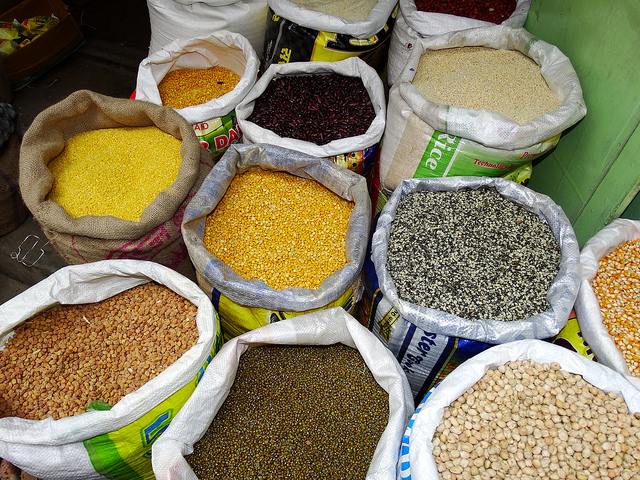Pulses, including legumes such as dry beans, chickpeas, lentils and peas, are crucial contributors to food security, improved nutrition, and sustainable development. These crops serve as sources of nutrients for the poor and income for many smallholder farmers, as well as vital means for restoring nitrogen into the soil and reducing the use of synthetic fertilizers that leach into groundwater and streams causing water pollution. Continuing the momentum from the 2016 International Year of Pulses, January 18, 2017 marks the second Global Pulse Day designed to emphasize the benefits of pulses for farmers, consumers, and the environment.
India, the biggest producer, consumer, and importer of pulses, has been facing challenges due to pulse price fluctuations. IFPRI’s research, technical support, and outreach activities on pulses—such as the “Pulses for Sustainable Agriculture and Human Health” conference held in New Delhi, India in May 2016 and the discussion paper, “Making pulses affordable again: Policy options from the farm to retail in India”—provided inputs to policy discussions within the country on minimizing pulse market volatility and serving the interest of both farmers and consumers. More specifically, IFPRI’s research helped inform some aspects a government report prepared by the Ministry of Finance’s Chief Economic Adviser, which was presented to the Prime Minister, outlining policy recommendations to expand the cultivation of pulses and improve productivity.
In addition, IFPRI’s work on pulses contributed to discussions on food security and sustainable development in the Middle East. In November 2016, IFPRI presented evidence from its research on the potential benefits of pulses to policy makers and stakeholders at a policy dialogue organized by the Food and Agriculture Organization of the United Nations (FAO) and the International Center for Agricultural Research in the Dry Areas (ICARDA).
IFPRI’s research and knowledge in policies to support pulse production will continue to inform decision making, dialogues, and policies to ensure sustainable food production, improved nutrition, and stable incomes, particularly for the rural poor.
Janna de la Paz is a Program Analyst at IFPRI. To view/download/print a PDF of this post, click here. For more about how IFPRI research is influencing stakeholders and policy debates around the world, see the Outcome Stories blog.







